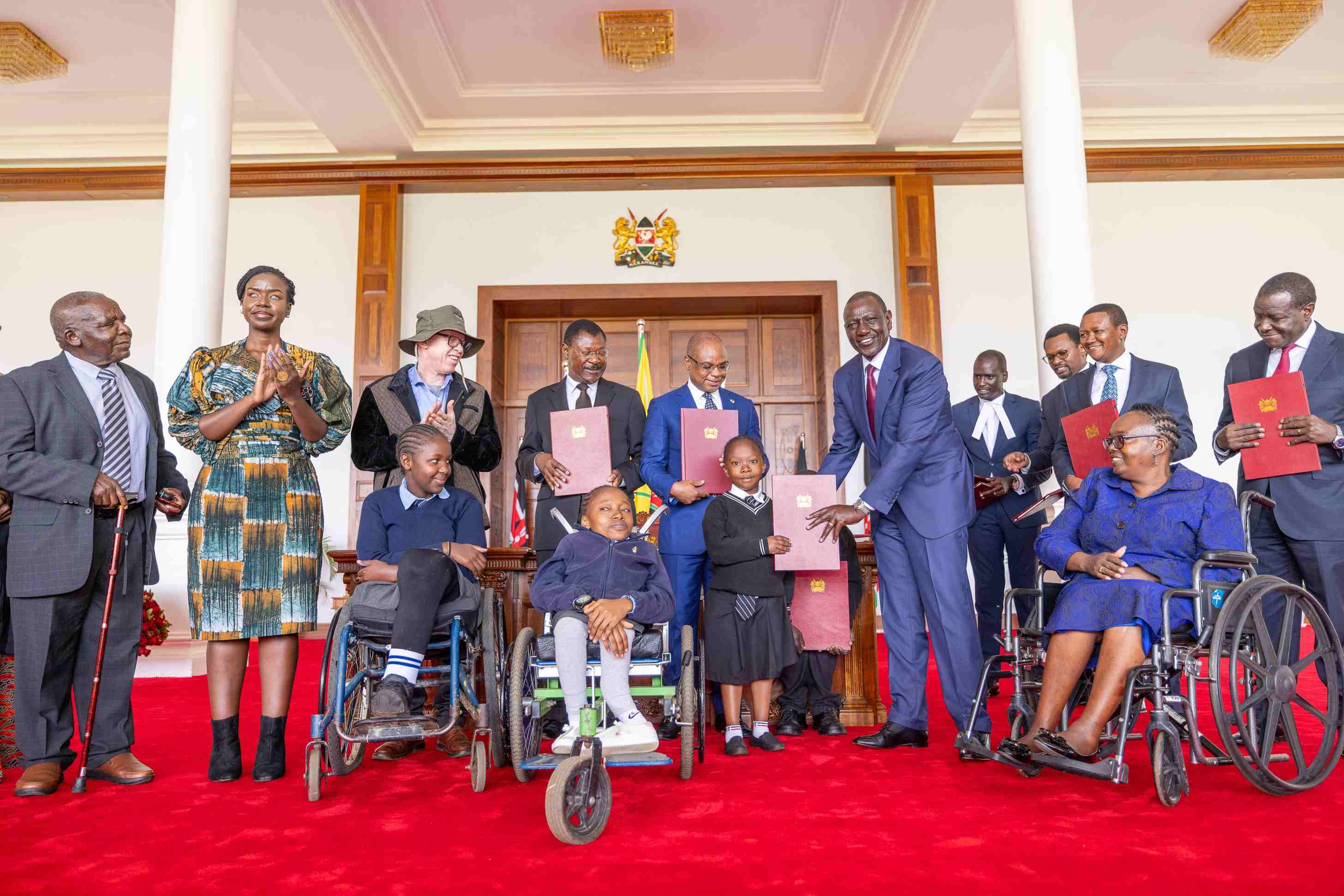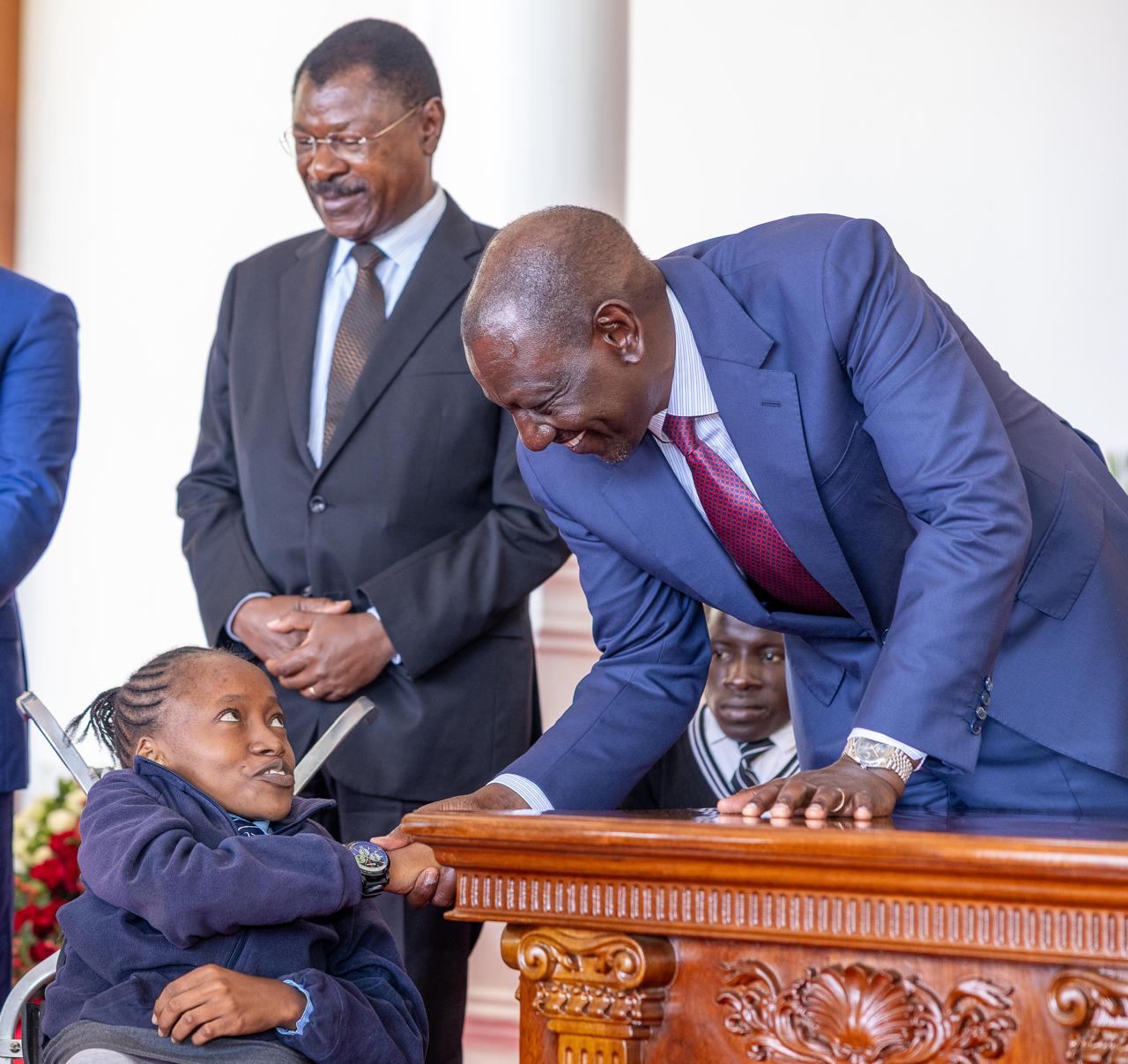Explainer: How Kenya’s new disability law will transform lives

The Persons with Disabilities Act, 2023, replaces the 21-year-old law that many disability rights groups have long criticised for being outdated.
A fresh law signed by President William Ruto is set to change how Kenya treats persons with disabilities, from how they access education and jobs to how they are represented in government and protected from abuse.
The Persons with Disabilities Act, 2023, replaces the 21-year-old law that many disability rights groups have long criticised for being outdated.
The new law introduces a rights-based model that puts dignity, equality, and accessibility at the centre of national and county government actions.
Crafted by nominated Senator Crystal Asige, the law gives legal force to Article 54 of the Constitution and brings Kenya into full alignment with the UN Convention on the Rights of Persons with Disabilities, which it ratified in 2008.
People-Centred approach
The new law shifts Kenya’s disability policy away from the old charity-based approach and focuses instead on rights and inclusion in all areas of life.
It spells out how public institutions, county governments, private businesses, and schools must treat persons with disabilities, not out of pity, but out of legal duty.
One of the biggest changes is the introduction of the principle of reasonable accommodation.
This means schools, employers, and government offices must remove barriers that prevent persons with disabilities from accessing services or opportunities.
This includes redesigning buildings, providing assistive devices like screen readers or sign language interpreters, and training staff to interact appropriately with persons with disabilities.
To encourage the private sector to join in, the government will offer generous tax deductions.
Employers who hire persons with disabilities will get a 25% salary deduction, while those who adjust buildings or facilities to improve access will receive a 50% tax break.
The law also outlines what must be done to ensure access to information.
Public broadcasters will now be required to include closed captions in news and educational programmes to support people with hearing impairments.
"All public service providers must ensure persons with disabilities have access to quality services on an equal basis with others," the statement reads.
 President William Ruto meets a Person Living With Disability (PWD). PHOTO/PCS
President William Ruto meets a Person Living With Disability (PWD). PHOTO/PCS
Counties to take charge of local inclusion plans
For the first time, counties have clearly defined responsibilities under a national disability law.
They must form disability advisory committees, implement national policy, and reserve at least five percent of public jobs and trading stalls in county markets for persons with disabilities.
The law also allows the National Council for Persons with Disabilities (NCPWD) to partner with counties and other agencies to enforce rights and conduct investigations into abuse, discrimination, or denial of services.
In the education sector, the law requires inclusive learning in mainstream schools, with needed supports like braille, sign language, and well-trained special needs teachers.
Schools are expected to remove physical, communication, and learning barriers to support all learners.
This is seen as a shift away from segregated learning institutions and a move toward equal treatment. The law also pushes for a national curriculum that is flexible and considers the different needs of learners with disabilities.
"This Bill is a game-changer for Kenya and a great win for the disability community," said Senator Crystal Asige, the Bill’s sponsor.
The health sector has also been placed under new obligations.
The law guarantees persons with disabilities free medical rehabilitation services and demands fair treatment by medical personnel, including during emergencies.
To enforce the law, the National Council for Persons with Disabilities will be restructured into an independent statutory body with powers to act on complaints and take legal action against those who violate disability rights.
It will also guide policy and offer training and support to state agencies and the private sector to improve inclusion.
A new Disability Development Fund will be set up to give persons with disabilities better access to loans, skills training, and business support.
This fund is expected to help reduce poverty levels among the community and support self-reliance.
The law also addresses a long-standing gap by ordering the government to collect reliable data on persons with disabilities. This data will help in planning, policy development, and service delivery
"There’s nothing about us without us," Senator Asige said, noting that the law ensures persons with disabilities are involved in decisions that affect them.
It also requires government institutions to include persons with disabilities in public appointments, scholarships, and procurement opportunities, and to use data to improve targeted services.
In addition, the law bans any form of discrimination against persons with disabilities and creates stiff penalties for abuse, violence, or denial of services.
While the new law is being widely welcomed, there are concerns that, like many progressive laws in Kenya, it could stall at implementation.
Experts warn that without enough funding, political will, and public awareness, the goals of the law may not be achieved.
Implementation will also require strong coordination between national and county governments and wide public education to shift attitudes from pity to respect and fairness.
The law comes at a time when more than one million Kenyans live with a disability, and many continue to face barriers in education, employment, transport, and healthcare.
